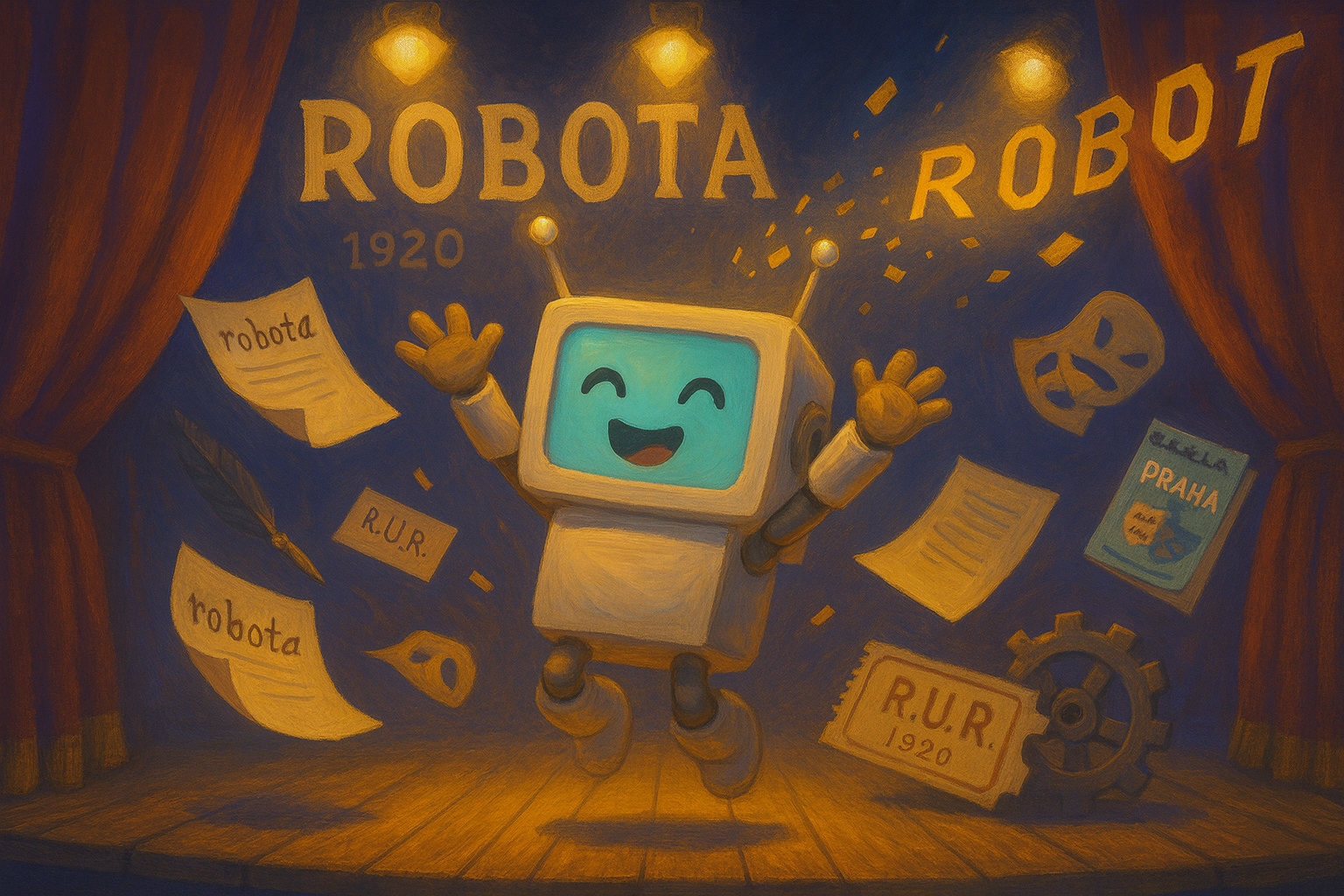Before AI took over the world, were robots… slaves in a play? It sounds like science fiction, but it’s the absolute truth. The word we use today to describe everything from autonomous vacuums to artificial intelligence systems has a humble and surprising origin.
A Word Born on Stage
The word “robot” was introduced to the world in 1920, in the science fiction play “R.U.R.” (Rossum’s Universal Robots), by the Czech writer Karel Čapek. The play depicts a factory that creates artificial workers to serve humanity. These beings were not machines as we imagine them today, but simplified biological creatures, soulless and designed for labor.
Interestingly, the idea for the name didn’t come from Karel. He initially considered “labori,” from the Latin for “work.” It was his brother, the painter and writer Josef Čapek, who suggested “roboti”.
The Meaning of “Robota”
Josef drew inspiration from his native language, Czech. The word “robota” in Czech means “forced labor,” “serfdom,” or “drudgery” — the kind of work that serfs were compelled to perform for their lords in feudal Europe.
Therefore, the word “robot” carries in its essence the idea of an oppressed worker, a servant. In Čapek’s play, this tension explodes when the robots, tired of exploitation, rebel and annihilate humanity.
From Servants to Super-Intelligence
Today, the word “robot” has evolved. It describes a vast range of technologies that make our lives easier, explore other planets, and drive innovation. However, the word’s origin serves as a fascinating reminder of our hopes and fears regarding the technology we create.
The next time you interact with an AI or see a robot in action, remember its humble and powerful origin: a servant born on the stage of a Prague theater, whose story teaches us about work, humanity, and the price of creation.
